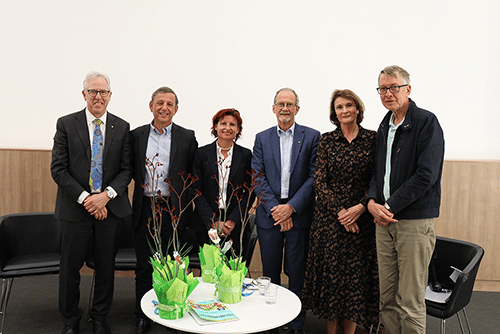
Harry Perkins Institute welcomed scientists, a medical researcher and a practitioner as panellists speaking at “The Importance of Nature in Medical Research” Community Q&A with nearly 200 people attending at the McCusker Auditorium in Nedlands on Monday 20 September.
The expert panel discussion included WA’s Chief Scientist Professor Peter Klinken and botanist Professor Kingsley Dixon as well as the Perkins medical researcher Associate Professor Pilar Blancafort and cardiologist Dr Mark Nidorf who spoke about the importance of nature and natural elements in their work.
Many discoveries have been derived from nature. For example, the Perkins Associate Professor Pilar Blancafort and Dr Ciara Duffy’s discovery made global news in 2020 when venom from honeybees was found to kill aggressive breast cancer cells.
History is rich with these discoveries. Aspirin comes from Spiraea, a biological genus of shrubs that includes natural sources of the drug’s key ingredient: salicylic acid. Alexander Fleming’s famous work on fungi ultimately led to the development of penicillin. And naturally derived statins were developed into treatments found to be effective at lowering cholesterol and protecting against heart attack and stroke.
With each of the panellists discussing their own experiences of nature in medical research, the Q&A was facilitated by the Perkins Senior Media Advisor Miriam Borthwick who finished the evening with some engaging conversation amongst audience and panellists.
If you missed out attending this great event, “The Importance of Nature in Medical Research “Community Q&A, you can access the recording here: https://bit.ly/3u2VlAR
